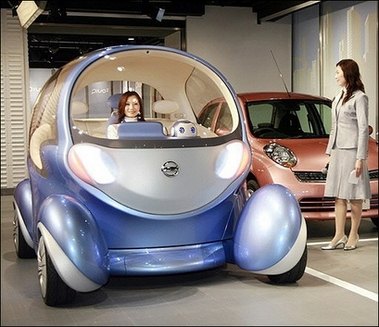Kelley Blue Book: Cash for Clunkers Bubble Will Burst
Here’s one new car shoppers won’t be reading on the home page at Kelley Blue Book. Via press release, the car guide’s boffins wonder what will happen when the federal government stops handing out free money to clunker-driving new car buyers. Unless the Cash for Clunker scheme is extended indefinitely (a possibility) and/or widened to include other types of vehicles (less possible but not improbable), the bubble she gonna burst. And then, bad things. Euphoria, meet reality.
“Dealerships have reported increased foot traffic, creating a false sense of automotive market recovery,” said Alec Gutierrez, senior analyst of vehicle valuation for Kelley Blue Book. “As a result, dealers are going to auction to restock inventory, driving up used-car values. However, the effect of a supply reduction of this magnitude could have an immense impact on these values in the short-term, exacerbating the already-limited supply at auction. If this bubble comes to pass, dealerships will end up with excess inventory of both new and used vehicles and be forced to offer deep discounts to remove surplus inventory, driving values down. Ultimately, there will be the possibility of a severe contraction in auto sales as soon as the Cash for Clunkers program runs out of funding.”
More by Robert Farago


































Comments
Join the conversation
+1 Pch101 Also, the concern about the Chinese not buying T-bills is a fallacy. The Chinese are actually concerned about American deflation because American consumption is what is floating their own market at this time. They essentially have no choice /but/ to buy dollars if they want to keep dumping their products on the US. So in essence the system works hand in hand - any stimulus provides for increased (or stabilized) American consumption which stabilizes the foreign economies. The US GDP (of a single country) reflects 2nd largest economy, the first being that of the entire EU at this time; the dollar as the principle reserve currency will be extant for at least another few decades...and the trade deficit will largely exist on paper as well. One sees the same effect with oil producing countries. Any talk otherwise by the foreign parties are at best pitching to get a discount on the treasury rate and at worst "sabre rattling".